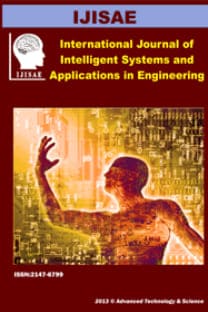AIR: An Agent for Robust Image Matching and Retrieval
AIR: An Agent for Robust Image Matching and Retrieval
___
- Agarwala A, Agrawala M, Cohen M, Salesin D, Szeliski R (2006). Photograping long scenes with multi-viewpoint panoramas. ACM Trans. on Graphics (SIGGRAPH). 25(3): 853-861.
- Brown M, Lowe DG (2003). Recognizing panoramas. Proc. 9th IEEE Int’l Conference on Computer Vision (ICCV). 2: 1218-1225.
- Brown M, Lowe DG (2007). Automatic panoramic image stitching using invariant features. Int’l Journal of Computer Vision (IJCV). 74(1): 59-73.
- Baumberg A (2000). Reliable feature matching across widely separated views. Proc. IEEE Computer Society Int’l Conference on Computer Vision and Pattern Recognition (CVPR). 1: 774-781.
- Goedeme T, Tuytelaars T, Van-Gool L (2004). Fast wide baseline matching for visual navigation. Proc. IEEE Computer Society Int’l Conference on Computer Vision and Pattern Recognition (CVPR). 1: 24-29.
- Kannala J, Brandt SS (2007). Quasi-dense wide baseline matching using match propagation. Proc. IEEE Computer Society Int’l Conference on Computer Vision and Pattern Recognition (CVPR). 1-8.
- Lee JA, Yow KC, Chia YS (2009). Robust matching of building facades under large viewpoint changes. Proc. 12th IEEE Int’l Conference on Computer Vision (ICCV). 1258-1264
- Katare A, Mitra SK, Banerjee A (2007). Content based image retrieval system for multi object images using combined features. Proc. IEEE Computer Society Int’l Conference on Computer Vision and Pattern Recognition (CVPR). 595-599
- Wang J, Zha H, Cipolla R (2005). Combining interest points and edges for content-based image retrieval. Proc. 12th IEEE Int’l Conference on Image Processing (ICIP). 3: 1256-1259
- Belongie S, Malik J, Puzicha J (2002). Shape matching and object recognition using shape contexts. IEEE Trans. on Pattern Analysis and Machine Intelligence (TPAMI). 23(4): 509-522
- Frome A, Huber D, Kolluri R, Billow T, Malik J (2004). Recognizing objects in range data using regional point descriptors. Proc. 8th European Conference on Computer Vision (ECCV). 3: 224-237
- Lowe DG (2004). Distinctive image features from scale-invariant keypoints. Int’l Journal of Computer Vision (IJCV). 60(2): 91-110
- Leordeanu M, Hebert M, Sukthankar R (2007). Beyond local appearance: Category recognition from pairwise interactions of simple features. Proc. IEEE Computer Society Int’l Conference on Computer Vision and Pattern Recognition (CVPR). 1-8
- Mikolajczyk K, Leibe B, Schiele B (2006). Multiple object class detection with a generative model. Proc. IEEE Computer Society Int’l Conference on Computer Vision and Pattern Recognition (CVPR). 1: 26-36
- Mutch J, Lowe DG (2006). Multiclass object recognition with sparse, localized features. Proc. IEEE Computer Society Int’l Conference on Computer Vision and Pattern Recognition (CVPR). 1: 11-18.
- Mikolajczyk K, Schmid C (2005). A performance evaluation of local descriptors. IEEE Trans. on Pattern Analysis and Machine Intelligence (TPAMI). 27(10): 1615-1630
- Bay H, Tuytelaars T, Van-Gool L (2006). SURF: Speeded Up Robust Features. Proc. 9th European Conference on Computer Vision (ECCV). 1: 404-417
- Lowe DG (2001). Local feature view clustering for 3D object recognition. Proc. IEEE Computer Society Int’l Conference on Computer Vision and Pattern Recognition (CVPR). 1: 682-688
- Se S, Lowe DG, Little J (2002). Global localization using distinctive visual features. Proc. IEEE/RSJ Int’l Conference on Intelligent Robots and Systems (IROS). 226-231
- Fischler MA., Bolles RC. (1981). Random sample consensus: a paradigm for model fitting with applications to image analysis and automated cartography. Comm. of the ACM. 24 (6). 381-395
- Hartley RI, Zisserman A (2000). Multiple View Geometry in Computer Vision. Cambridge University Press UK
- Nister D., Stewenius H (2006). Scale recognition with a vocabulary tree. Proc. IEEE Computer Society Int’l Conference on Computer Vision and Pattern Recognition (CVPR). Vol. 2. pp. 2161-2168
- Ballard DH (1981). Generalizing the hough transform to detect arbitrary shapes. Pattern Recognition (PR). 13 (2). 111-122
- Grimson WEL (1990). Object Recognition by Computer: The Role of Geometric Constraints. The MIT Press Cambridge. 263-284
- Hough PVC (1962). Method and means for recognizing complex patterns. U.S. Patent 3069654
- Fredman M (1975). On computing the length of longest increasing subsequences. Discrete Mathematics. 11 (1). 29-35
- Faugeras O (1993). Three-Dimensional Computer Vision: A Geometric Viewpoint. The MIT Press Cambridge
- Chandrasekhar V, Chen DM, Tsai SS, Cheung NM, Chen H, Takacs G, Reznik Y, Vedantham R, Grzeszczuk R, Bach J, Girod B (2011). The stanford mobile visual search data set. Proc. 2nd Annual ACM SIGMM Conference on Multimedia Systems (MMSys). 117-122
- ISSN: 2147-6799
- Yayın Aralığı: 4
- Başlangıç: 2013
- Yayıncı: Ismail SARITAS
Particle Swarm Optimization Design of Optical Directional Coupler Based on Power Loss Analysis
AIR: An Agent for Robust Image Matching and Retrieval
Jimmy LEE, Attila SZABO, Yiqun Lİ
Power System Contingency Ranking using Fuzzy Logic Based Approach
Almoataz Youssef ABDELAZİZ, Adel TAHA, Mahmoud MOSTAFA, Ahmed HASSAN
Editorial Board & Publication Information
Developing a Fuzzy Logic Decision Support System for Strategic Planning in Industrial Organizations
